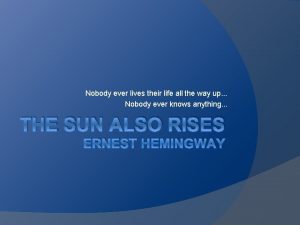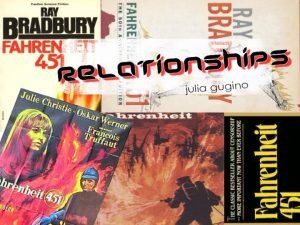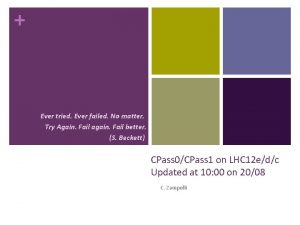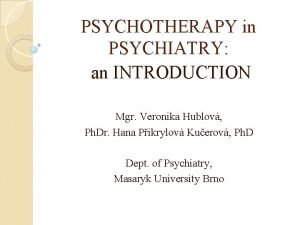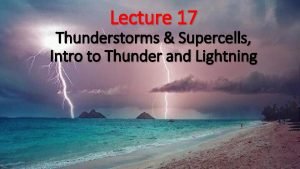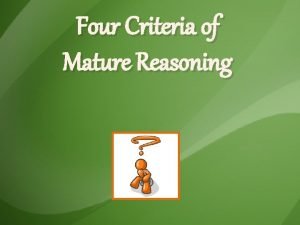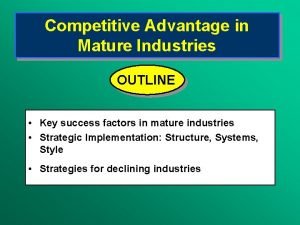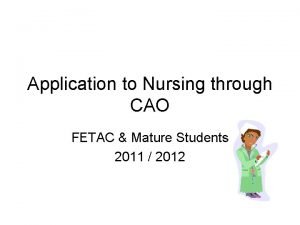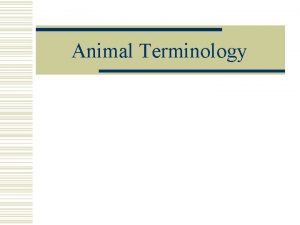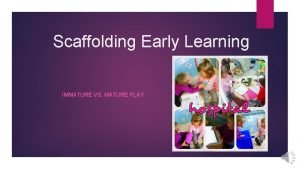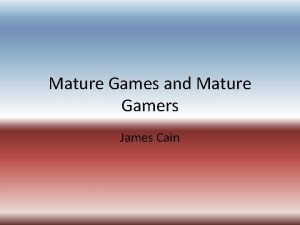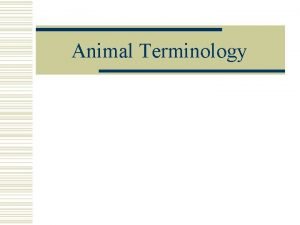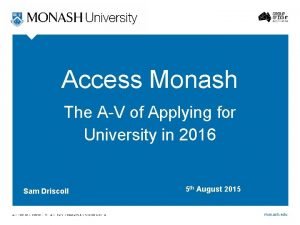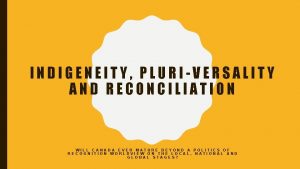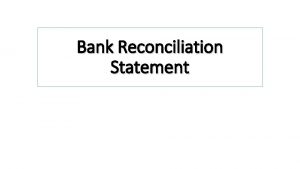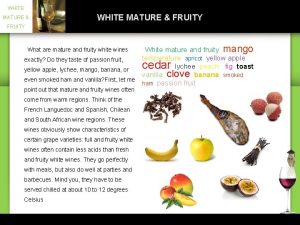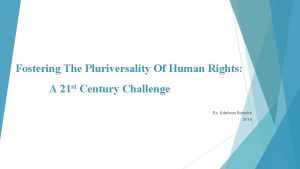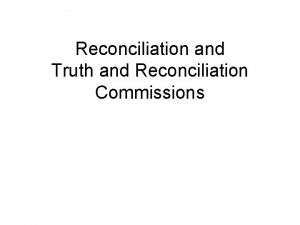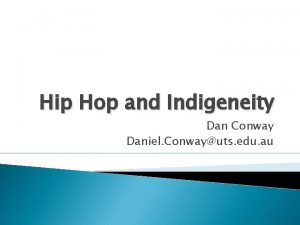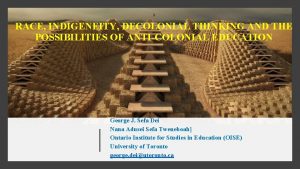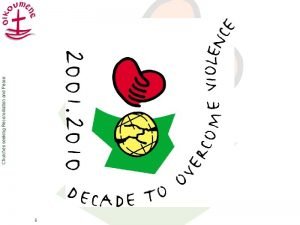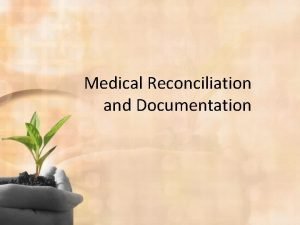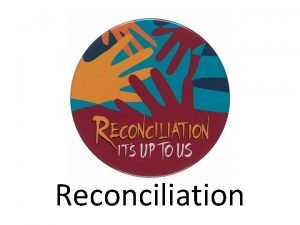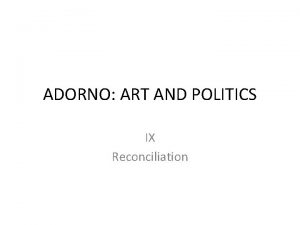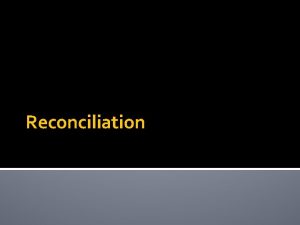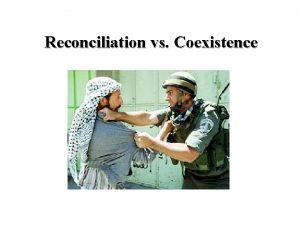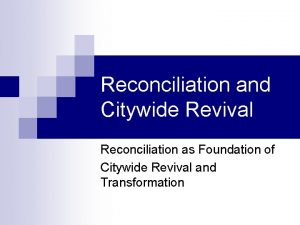INDIGENEITY PLURIVERSALITY AND RECONCILIATION WILL CANADA EVER MATURE























- Slides: 23

INDIGENEITY, PLURI-VERSALITY AND RECONCILIATION WILL CANADA EVER MATURE BEYOND A POLITICS OF RECOGNITION WORLDVIEW ON THE LOCAL, NATIONAL AND GLOBAL STAGES?

TSILHQOT’IN NATION DECISION & RECONCILIATION • Supreme Court reconciled Indigenous access and benefit to land resources, while also conceding that “Aboriginal title” is not absolute, and can be justifiably limited for general economic development (Tsilhqot’in Nation 2014, para. 81 – 82; 84). • Suggests a hollow conception of reconciliation in which the Crown’s sovereignty supersedes Aboriginal title and the “broader interests of society” (Tsilhqot’in Nation 2014) supplant Indigenous jurisdiction,

WHAT IS INDIGENEITY? THE MILLION DOLLAR QUESTION “…‘indigeneity’…combination of the words indigenous and identity. . . what else is there to say about it? . . . what is indigenous identity? Who defines it; a government, a group of people, an authoritative individual? This term is a little harder to apply because of the long settler-colonial legacy of denying indigenous people their Native ethnicity in North America… ‘indigeneity’ is an indigenous identity particular to an individual who sees him/herself as belonging to a specific group with roots dating prior to the so-called “great encounter” of 1492…encompasses a diverse array of peoples, cultures, and societies…” - Tlakatekatl, July 18, 2014

CULTURE OF A BAD QUESTION Does identity stem from genetics or cultural affiliation? ? ? • Politics of Decolonization is Is identity about having power to define open to one’s identity. change? ? ? • “One of the most provocative issues is the competing definitions of Indian identity” (Forte 2013, p. 4; Archuleta 2005, p. 1). • Weaver (2001) notes, “there is little agreement on precisely what constitutes an Indigenous identity, how to measure it, and who truly has it” (p. 240). “Invaders created the category of Indians, imposed it on the inhabitants of the New World, and have been trying to abolish it ever since. ” – David Maybury-Lewis, co-founder of Cultural Survival, “A New World Dilemma” (1993)

New Indians. Born-again Indians. Hobby Indians. Wannabe Indians. Ersatz Indians of convenience. Generic Indians. Compliant Indians. INDIGENEITY & ESSENTIALISM • Critical not to treat identity as an essentialized idea in which the identity categories of gender, race and class become “fixed, immutable and universal”. – Coulthard (2014) • • Post-colonial theory opposes the existence of any “real essence in a given racial/ethnic category or identity”. – Jace Weaver (2005) • Indigenous peoples use essentialism to counter-act domination and create space for their voices to be heard. – Cook. Lynn (2005) • De-link Indigenous identity, beliefs, or culture from essentialism. Essentialization of Indigeneity leads to misunderstandings and makes it difficult to distinguish between Western and Indigenous cultures. – Jace Weaver (2005)

INDIGENEITY & RIGHTS PRESENT STATE IN CANADA

DISPARATE COMMUNITY VIEWS • “…libertarian, anarchist, and contrarian lines of thought are found within Indigenous communities. . . Indigenous people occupy different points along political spectrums. Some are conservative, others are liberal, while yet others resist capitalism and adopt or reject alternative forms of Indigenous political classification” – John Borrows (2016)

PRESENT STATE OF AFFAIRS… Jody Leon of Splatsin in B. C. warned First Nations leaders not to sign away the rights of younger and future generations.

ACHIEVING TRANSNATIONAL PLURIVERISALITY WHERE CANADA GO FROM HERE?

RECONCILIATION TYPOLOGY Conformity to Inter-cultural, Legal/Political, Decolonization and Epistemological Conduct High Stand-Alone enacts inter-cultural, legal, political, & epistemological change enacts inter-cultural, legal, political & epistemological change, Indigenous autonomy focus reconstructs structure-culture dichotomy engages in ‘relational responsibility’ and dialogue engages in limited 'relational responsibility' and dialogue, away from state constructs balances power values other worldviews, but powersharing focuses on Indigenous autonomy stabilizes culture-ecology-economic dichotomy Transition Low Relationship Commitment Genuine Assimilative enacts change, critiques dominant view does not enact change, rightsrecognition focus reconstructs dichotomy, values culture first limited reconstruction, favors multiculturalism engages in 'relational responsibility' and dialogue limited 'relational responsibility' and dialogue, under state constructs limited power balancing, relies on state constructs does not balance power, rightsrecognition solves the problem values other worldviews does not value other worldviews, relies on Western knowledge stabilizes culture-ecology & not economic dichotomy does not stabilize dichotomy, constructs favor accumulation

RESPECT FOR PLURALITY OF WORLDVIEWS • “. . . They want to talk about reconciliation? Well, I don’t know if I ever want to use that word again. My definition: to reconcile must be two guilty parties coming together. What the hell did we do except be Wet’suwet’en? Not once did we break our law. They said the people arrested were being civil disobedient, well they were being obedient to our law” – Wet'suwet'en Hereditary Chief Na'moks (2019)

GENUINE RECONCILIATION, A PARADIGM SHIFT…. • More than the standard post-colonial and anti-colonial critiques of “Eurocentrism”. • Actively brings Indigenous lifeworlds, epistemologies and the “coloniality of the marginalized” to the forefront. • Strengthens local Indigenous worldviews by giving them a voice at the national-level to avoid a Western European “geo-politics of knowledge” in which “there can be no others” (Mignolo 2002). • Fanon calls this type of shift as the “damné from the very perspective of the damné” (cited in Mignolo 2005). • Therefore, genuine reconciliation is shaped by the damné experience, location and worldview.

INDIGENEITY ON THE WORLD STAGE HOW CANADA LOOK OUT ON THE WORLD STAGE FROM AN INDIGENOUS WORLDVIEW?

COMPLEX MUTUAL CO-EXISTENCE • Do not embed one worldview into another. • Address racial privilege to eradicate institutional racism and the subordination of Indigenous lifeworlds. • Respect and account for Indigenous rights, laws, jurisdiction and sovereignty in their own right. • Do not reinforce settler-colonial political and legal frameworks in a way that permits them to dominate Indigenous rights, jurisdiction and sovereignty in the Haudenosaune e. Principles • Mutual recognition; • Respect; and • Peaceful coexistence

CANADA-CHINA FIPPA IMPACTS ON INDIGENOUS RIGHTS “… The Federal Court concluded that Canada did not owe Hupacasath a duty to consult because the alleged potential adverse impacts of FIPA on its interests were “nonappreciable” and “speculative”, and Hupacasath had failed to establish any causal link between FIPA and its alleged impacts” - Hupacasath First Nation v. Canada (Attorney General)

COMPENSATION AND CONSULTATION CHALLENGES • FIPA type agreements: – Prioritize investor rights over Indigenous rights (Richardson 2017, p. 2); – Allow foreign companies to sue Federal Government for potential loss of profits if Indigenous groups oppose resource extraction or development projects; and – Forced consultation with Indigenous Nations when international agreements adversely affect rights. BUT, consultation is at the lower end • “ 31. Where Canada informs Tsawwassen First Nation that it considers that a Tsawwassen Law or other exercise of power by Tsawwassen First Nation causes Canada to be unable to perform an International Legal Obligation, Tsawwassen First Nation and Canada will discuss remedial measures to enable Canada to perform the International Legal Obligation. Subject to clause 32, Tsawwassen First Nation will remedy the Tsawwassen Law or other exercise of power to the extent necessary to enable Canada to perform the International Legal Obligation” (cited in Clogg & Gage 2012, p. 3).

EMPIRE, INDIGENEITY AND GLOBALIZATION INDIGENOUS PERSPECTIVES

IMPACTS OF CANADIAN IMPERALISM ON INDIGENOUS PEOPLES • Nations with strong lifeworld connections believe their treaty relations are international. • National and international relationships must respect Indigenous lifeworlds and selfdetermination instead of nation-state sovereignty. • Indigenous lifeworlds push us to think about sharing power within and beyond state border and the global

• Imperialist Canada drive for accumulation by dispossession robs Indigenous peoples of natural resources, land rights through treaty-making, exploitation or theft (Gordon 2009, p. 48; Harvey 2006; Gordon 2010 b). • Settler-colonial capitalism in Canada is privileged over Indigenous sovereignty, rights and the importance of life and nature. • Politics of Recognition advances reconciliation through a plan of economic development, rights-oriented legal strategies, treaty-making and other constructive arrangements (Government EMPIRE

QUESTIONS?

ANNEXES

ANNEX A: CHANGING THE COLONIAL PARADIGM… Nth. Eyed Seeing What are they? And, what do these concepts mean in the context of working on distinctions-based approaches?

ANNEX B: ETHICAL SPACE Plurality of Indigenous Worldviews Ethical space Nth Eyed-seeing configures ethical/moral/legal principles Theatre for cross-cultural conversation Elders, knowledge keepers & allies can articulate, define and assert Indigenous rights Convergence of disparate systems, cross-cultural relations and shift to a partnership model Canada & Other Worldviews
 Ever ancient ever new
Ever ancient ever new Ever ancient ever new
Ever ancient ever new Have you ever looked
Have you ever looked Ever tried ever failed no matter
Ever tried ever failed no matter Definition of degrees of comparison
Definition of degrees of comparison Strategies for mature and declining markets
Strategies for mature and declining markets Bill nye hurricanes
Bill nye hurricanes Defense mechanism mature
Defense mechanism mature Cumulus mature dissipating
Cumulus mature dissipating Physiological maturity and horticultural maturity
Physiological maturity and horticultural maturity Cumulus mature dissipating
Cumulus mature dissipating Four criteria
Four criteria Mature industry
Mature industry Fragmented industry
Fragmented industry An embryonic industry is one that:
An embryonic industry is one that: Mature market strategies
Mature market strategies Cao mature student application
Cao mature student application Maturefemales
Maturefemales Play immature
Play immature Mature gamers
Mature gamers Mature female ovine
Mature female ovine Mature male galine
Mature male galine Mature age student monash
Mature age student monash Nucleo multilobato
Nucleo multilobato
